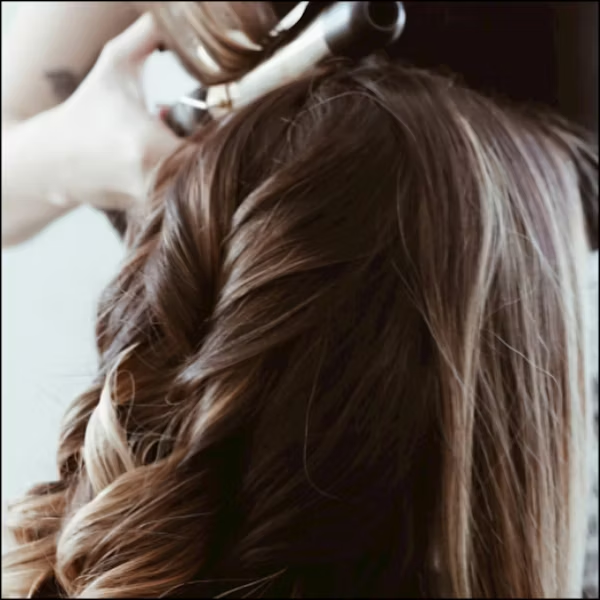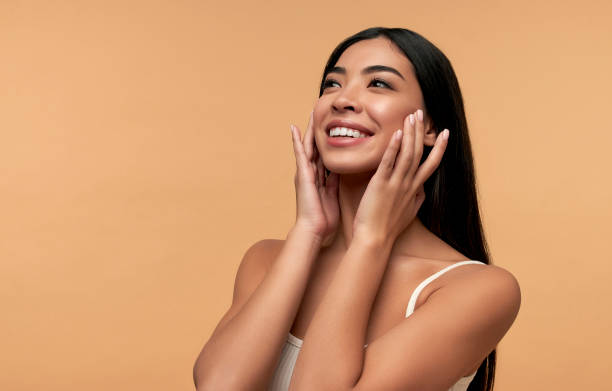Eczema and Hair Dye: Safe Coloring Options for Sensitive Skin
Hair color is more than just a beauty choice—it’s a form of self-expression. But if you’re living with eczema, even a simple dye job can become a risky proposition.
For many people with eczema, especially those with scalp or facial involvement, hair dye can trigger redness, itching, burning, and flare-ups. Certain chemicals in traditional hair color products are known irritants or allergens, especially for those with compromised skin barriers.

In this guide, we break down the science behind eczema and hair dye, the ingredients to avoid, and safe coloring alternatives that allow you to refresh your look—without stressing your skin.
Why Hair Dye Triggers Eczema
The skin of people with eczema is already compromised—it’s more permeable, more reactive, and more vulnerable to allergens. This is especially true for the scalp, neck, and hairline, which are common sites of atopic dermatitis and seborrheic eczema. Reference our blog post to learn more about scalp and skin flareups.
Hair dyes often contain a cocktail of harsh chemicals that can:
- Disrupt the skin barrier
- Cause allergic contact dermatitis
- Intensify inflammation and redness
- Leave behind chemical residues even after washing
An NIH study study in the noted that para-phenylenediamine (PPD)—a common ingredient in permanent dyes—is one of the most frequent allergens in patients with eczema and other sensitive skin conditions.
Common Hair Dye Ingredients That Can Trigger Eczema
Here’s what to watch out for in typical hair dye formulas:
1. Para-Phenylenediamine (PPD)
Found in most permanent hair dyes, especially dark shades. It’s a well-known allergen and top trigger of contact dermatitis.
2. Ammonia
Used to open the hair cuticle for color penetration. Ammonia can be very irritating to the skin and scalp.
3. Resorcinol
A dye stabilizer that can cause burning, redness, and scaling in sensitive individuals.
4. Fragrance
Often added to mask chemical odors. Fragrance is one of the top allergens for people with eczema, particularly on the scalp and neck.
5. Sulfates and Alcohols
While not all alcohols are bad, many drying alcohols in dyes can dehydrate the skin, worsening eczema symptoms.
How to Dye Your Hair Safely with Eczema
Thankfully, avoiding flare-ups doesn’t mean giving up on color. Here’s how to approach hair dye when you have eczema:
1. Patch Test Always
Test any product 48 hours before using, even if it’s labeled “natural” or “hypoallergenic.” Apply a small amount to your inner elbow and observe for itching, redness, or burning.
2. Choose PPD-Free Hair Dyes
Look for dyes explicitly labeled “PPD-free” or “suitable for sensitive skin.” These often use alternative colorants like henna, indigo, or para-toluenediamine sulfate (PTDS), which is less irritating.
3. Go Semi-Permanent or Temporary
These options contain fewer chemicals than permanent dyes and are less likely to penetrate deeply into your scalp. However, results don’t last as long.
4. Consider Natural Options
- Henna: A plant-based dye that’s safer for most people with eczema—but always ensure it’s pure (no metallic salts or additives).
- Vegetable-Based Dyes: Look for brands using plant-based pigments and minimal processing.
Always read the ingredient list—even “natural” products can contain irritating preservatives or essential oils.
5. See a Professional Colorist
A trained hair stylist familiar with skin sensitivities can help select gentler options and ensure application avoids direct skin contact, especially on the scalp and nape.
6. Pre-Treat with a Barrier Cream
Apply a thin layer of petroleum jelly or a barrier cream around the hairline and ears to reduce direct dye contact with the skin.
7. Avoid Coloring During Flares
Wait until your eczema is under control before dyeing your hair. Open or inflamed skin is far more vulnerable to reactions—even from products you’ve used safely before.
Best Eczema-Safe Hair Dye Brands (as of 2025)
Here are some products frequently recommended by dermatologists and allergy specialists:
- Herbatint – Ammonia-free and PPD-free; uses plant-based ingredients
- Naturtint – PPD-free with a range of gentle, botanical formulas
- Light Mountain Natural Hair Color – Pure henna-based dyes
- Madison Reed – No PPD, ammonia, or parabens; suitable for sensitive scalps
Even with safer brands, always do a patch test and read the full ingredient list.
What If a Reaction Happens?
Despite precautions, reactions can happen. Here’s what to do:
- Rinse Immediately: Wash out the dye thoroughly with a gentle, fragrance-free shampoo
- Apply a cold compress to calm burning or itching
- Moisturize with a non-irritating, hydrating cream like NellaDerm’s Soothing Repair Balm
- Use topical corticosteroids or antihistamines if prescribed by your doctor
- See a dermatologist if the flare doesn’t improve within 48–72 hours
Final Thoughts
Coloring your hair when you have eczema doesn’t have to be a gamble—it just requires caution, research, and skin-awareness.
With so many safer, PPD-free and fragrance-free options on the market today, people with sensitive skin can still enjoy the creativity and self-expression that hair dye offers.
For post-dye skin support and eczema-friendly skincare, visit NellaDerm.com, where you’ll find dermatologist-developed solutions designed to nourish and protect compromised skin—whether from eczema or chemical exposure.
Our Promise to You
We’re confident our products will transform your skin—but if you’re not completely satisfied, we’ve got your back. Simple as that. Try our products risk-free for 30 days. If you don’t love your results, reach out to our care team and we’ll make it right with a full refund. No questions asked, no complicated returns process. Because everyone deserves skincare that works.

